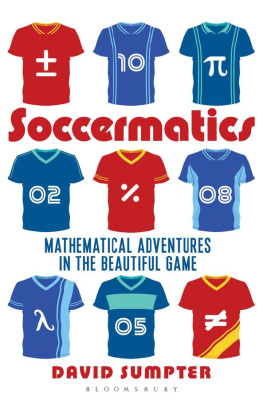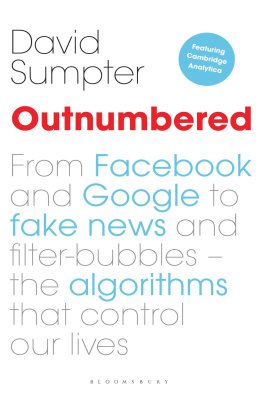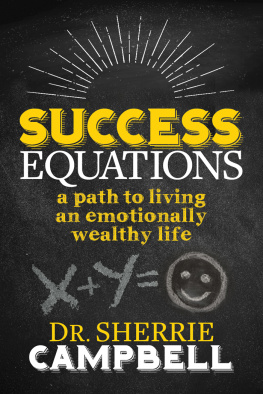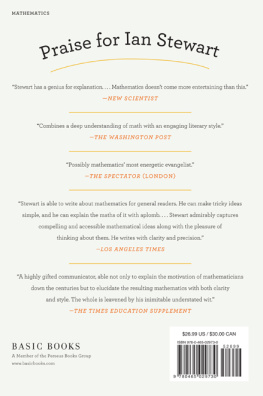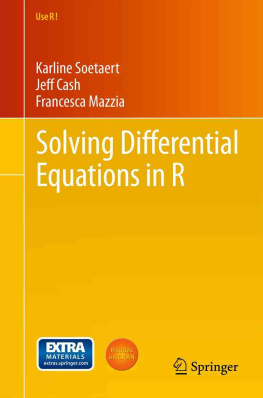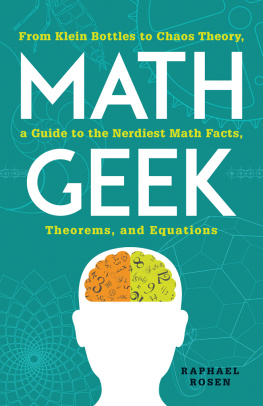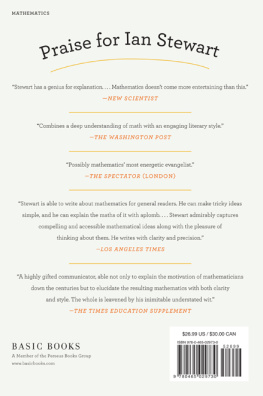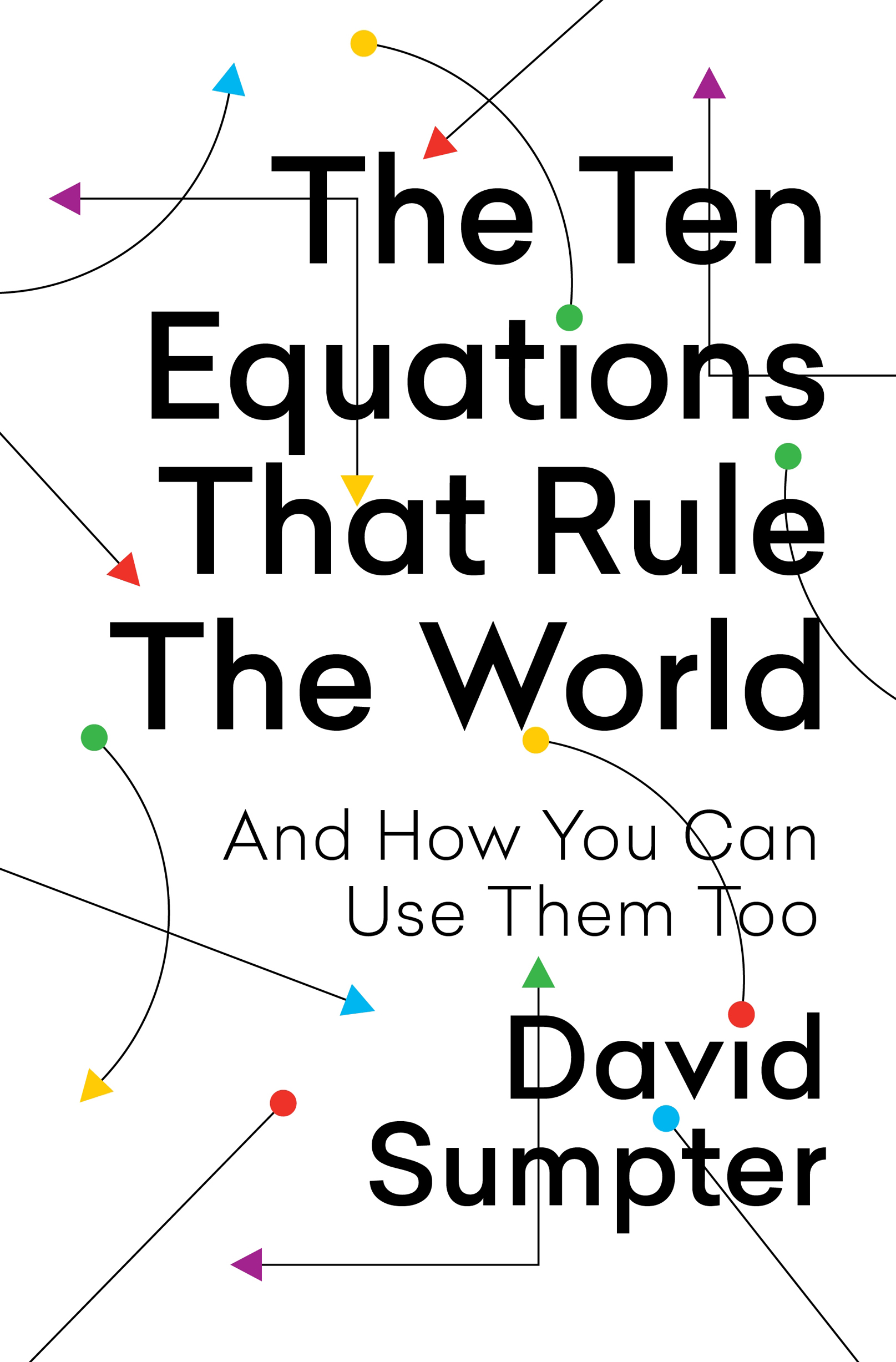Contents
Guide
Pagebreaks of the print version

The author and publisher have provided this e-book to you for your personal use only. You may not make this e-book publicly available in any way. Copyright infringement is against the law. If you believe the copy of this e-book you are reading infringes on the authors copyright, please notify the publisher at: us.macmillanusa.com/piracy.
Do you want to know the meaning of life?
Thats a little broad. Ill be more precise. Do you want to take a more balanced approach to life? To feel confident in your actions and the things you say? Do you want to learn from your mistakes? To know when to stick with the path youre on, and when it is time for a change?
Perhaps you want to influence others around you. Maybe you want to know how popular you really are. Wouldnt it be nice, at least, to know if others are judging your actions fairly? To know that youre open-minded and just in turn?
The questions above are about our psychology, our philosophy, and in some cases, our spirituality. They are about our human nature and our place in the world. They are also questions that seem to lack clear-cut answers. If they were straightforward, there might not be so many self-help books on offer, so many daytime TV shows where guests let their feelings out, so many motivational TED Talks. It feels natural, in seeking answers to these questions, to reflect on our own memories and instincts. Our search for better judgment, greater self-confidence, and emotional balance becomes a journey into our own human psyche. A journey of self-development.
I want you to think about another possibility, one that this book explores. I am going to tell you a story about an exclusive society of individuals who have cracked the code. They have discovered a small number of equationsten of them, in factthat, when used correctly, offer the seeds of success, popularity, wealth, self-confidence, and sound judgment.
This secret society has been with us for centuries. Its members have passed their knowledge down through the generations. They have taken positions of power in public service, in finance, in academia, and, most recently, inside tech companies. They live among usstudying us, advising us, and sometimes controlling us. They are self-assured, often rich, sometimes even happy. They have discovered secrets the rest of us desire.
In Dan Browns book The Da Vinci Code, cryptographer Sophie Neveu discovers a mathematical code while investigating the murder of her grandfather. She is led to Professor Robert Langdon, who reveals that her grandfather was head of a secret society, the Priory of Sion, which understands the world through a single number, the golden ratio, 1.618.
The Da Vinci Code is fiction, but the secret society I have investigated for this book has similarities to the one Brown describes. Its secrets are written in a code that few fully comprehend; its members communicate in arcane scripts. The society has its roots in Christianity, and it has been rent by internal moral conflicts. It differs from the Priory of Sion, however, in that it has no rituals whatsoeverno initiation rites, no talismans of membership. This makes it far more difficult to detect, even as it is much more pervasive in its activities. It is invisible to those on the outside.
It has no name, so I have to give it one. I will call it TEN, after the equations one must learn to become a full member.
How do I know about TEN? The answer to that is simple. I am a member. I have been involved in its workings for twenty years and have gravitated closer and closer to its inner circle. I have studied its products and put its equations into practice. I have experienced firsthand the rewards access to its code can bring. I have worked at the worlds leading universities and was appointed full professor in applied mathematics the day before my thirty-third birthday. I have solved scientific problems in fields ranging from ecology and biology to political science and sociology. I have been a consultant in government, artificial intelligence, sports, gambling, and finance. (In order of respectability, perhaps.)
Membership in this club has brought me into contact with others like me. Like the data scientists who study how sport stars control the field of play; and the technical experts employed by Google, Facebook, Snapchat, and Cambridge Analytica, who control our social media and are building our future artificial intelligence. People like Marius and Jan, young professional gamblers who have found an edge on the Asian betting markets; those like Mark whose microsecond calculations skim profits from small inefficiencies in share prices. I have witnessed firsthand how researchers like Moa Bursell, Nicole Nisbett, and Viktoria Spaiser use equations to detect discrimination, understand our political debates, and make the world a better place. I have learned from the older generation, like ninety-six-year-old Oxford professor Sir David Cox, who discovered the societys source code, piece by mathematical piece.
We know these equations are important because theyve already changed the world. Chapter 9 tells the story of three engineers in California who used the learning equation to increase the time viewers spent watching YouTube by 2000 percent. The betting equation, the influencer equation, the market equation, and the correlation equation have reshaped, respectively, betting, technology, finance, and advertising to generate billions of dollars of profits for a small number of the societys members.
It is not just about the money. The power of TEN applies to questions all of us confront on a daily basis. Should you quit your job (or your relationship) and try something else? Are you really less popular than your friends? How much effort should you put into climbing the social ladder? Is it possible to cope with the vast flood of information from social media? Should you let your kids spend six hours a day staring at their phones? How many episodes of a Netflix series should you watch before trying something else?
These might not be the problems you expect a secret mathematical code to resolve. But heres the thing. The same small set of formulas can provide the answers to questions ranging from the trivial to the profound, and about you as an individual and society as a whole. The confidence equation, introduced in chapter 3, which helps you decide whether you should quit your job, also reveals subtle racial and gender biases at work. The reward equation, discussed in chapter 8, shows how social media has driven society to the tipping pointand why this isnt necessarily a bad thing.
I believe in TEN because it has worked for me. These equations have shaped my thinking in ways that have helped me find happiness and fulfillment. Theyve also made me a better person: more balanced in my outlook and better able to understand the actions of others. Learning TEN involves challenging many of our everyday assumptions, and changing the way we make decisions. As you learn the secrets in this book, more and more aspects of the world will start to make sense. Math can be used to solve problems you didnt know had solutions.
That said, this is not the kind of self-help book that tells you the one and only way to do things, nor the kind that can be distilled into bullet points. It is not the Ten Commandments. It is not a list of dos and donts. There are instructions on how to use each equation, but none of these come la carte. You cant skip to page 157 and find out the exact number of Netflix episodes you need to watch. The secret code of TEN is more like a language; first you learn the basic vocabulary, then some grammar, and soon the whole library is yours to explore.


